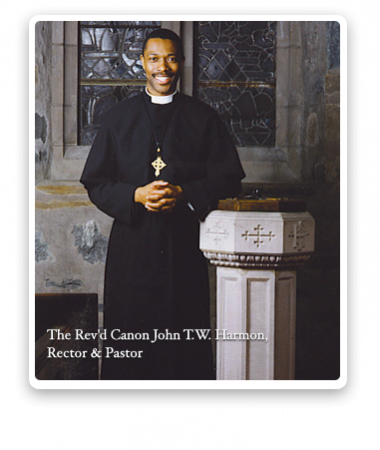Washington DC church loses a quarter of its congregation because of Ebola fears

A Washington DC was left reeling when a quarter of its congregation dropped out of Sunday services for fear of Ebola spreading through their church.
Rev John Harmon, pastor of Trinity Episcopal Church, said the fears were mainly due to their international membership, with some members originally from West African countries where Ebola had spread.
Why these 50 people stopped going to church first baffled Harmon, who himself was born in Liberia before migrating to the US in 1982 at the age of 18.
"This congregation gave $5,000 and were part of a national effort to send containers [of relief supplies and protective gear] to West Africa," he said, according to KNAU.
So it came as a complete surprise when this generosity gave way to fears of going to church, which the pastor realised was behind the falling attendance numbers only when people began airing their concerns.
"Some folks called to say, I'm not coming to church because I don't know who's traveling [to West Africa]," he said.
Harmon took the unusual decision to interrupt the regular church service and confront the issue head-on. It was not enough to announce that no one in their congregation was, in fact, travelling to West Africa. He also called doctors to the front to address ignorance over how the disease is passed on.
Cora Dixon, a member of Trinity church, told KNAU radio how much of a relief it was for their misguided fears about Ebola to have been put to rest. "Several of them [doctors] got up, and they spoke to the cause. And they relaxed our minds."
"In the middle of the service, we just had this honest conversation," Harmon said.
In the days after, the pastor introduced some guidelines to ease fears, such as giving anyone who travelled abroad a pass of three weeks to skip church activities. The three weeks reflects the incubation period for Ebola and the option of staying away can be taken up even by members who travelled nowhere near to West Africa.
He encouraged the use of hand sanitisers in the church and also changed the guidelines so that during the passing of peace, a bow or a nod would be appropriate in place of shaking hands or exchanging hugs as part of the Sunday service.
Rev Harmon got the results he wanted when congregation members starting returning to the pews. And by Christmas time, there was no shortage of people to hug and greet one another on the joyous occasion of Jesus Christ's birth.











